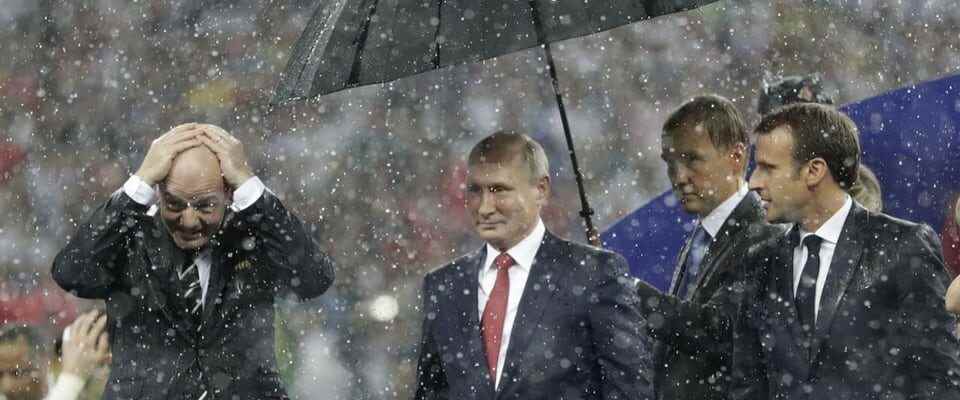contents
The World Cup in Qatar is considered the “most political and controversial World Cup of all time”. Is that correct? A look at World Cup history.
Dead workers on the stadium construction sites, working conditions similar to slavery, alleged bribes paid when the World Cup was awarded – the list of criticisms of the World Cup in Qatar is long.
The World Cup has now begun, but politics continues to dominate the headlines. Fifa announced sanctions if team captains wear the “One Love” armband on the pitch. In the match between England and Iran, the players refused to sing the Iranian anthem. And the Germans put their hands over their mouths in protest at the team photo.
Is the World Cup in Qatar the “most political” and “most controversial World Cup of all time”? Mämä Sykora, long-time editor-in-chief of the independent football magazine Zwölf, sees things a little differently:
With the annexation of Crimea, UN international law was deliberately broken. The World Cup was still held in Russia.
Russia 2018: The World Cup in President Vladimir Putin’s Russia drew criticism very similar to that of the tournament in Qatar. A month before the start of the tournament, Human Rights Watch noted that the World Cup was taking place “during the worst human rights crisis in Russia since Soviet times”. Restricted civil liberties, racism, homophobia enshrined in laws: all of this led to calls for a boycott, which, unlike in Qatar, largely went unheeded.
There were even similar abuses in stadium construction, as various media reported. In addition: “With the annexation of Crimea, UN international law was deliberately broken, and the World Cup was still held,” says Mämä Sykora.
Legend:
Putin at the victory celebration: The Russian President left Fifa boss Gianni Infantino and French President Emmanuel Macron out in the rain when the trophy was handed over to France.
Keystone/n/a
Brazil 2014: The World Cup in Brazil is often associated with one word: forced resettlement. Social institutions denounced “systematic violations of the right to housing”. 170,000 people had to vacate their homes because of the World Cup and the subsequent Olympic Games – in violation of human rights, as a UN reporter pointed out. In addition, the major event devoured vast amounts of money that could have been used for schools, universities or hospitals. Hundreds of thousands across the country occupied streets in protest. “In South America and Africa, money was spent that would not have been there,” says Sykora.
South Africa 2010: The vuvuzelas have gone silent again. Twelve years ago, host country South Africa invested CHF 4.5 billion in the first football World Cup on the African continent. However, these investments brought nothing to the 20 million poor in the country, wrote the Swiss Labor Fund (SAH) in the run-up to the World Cup.
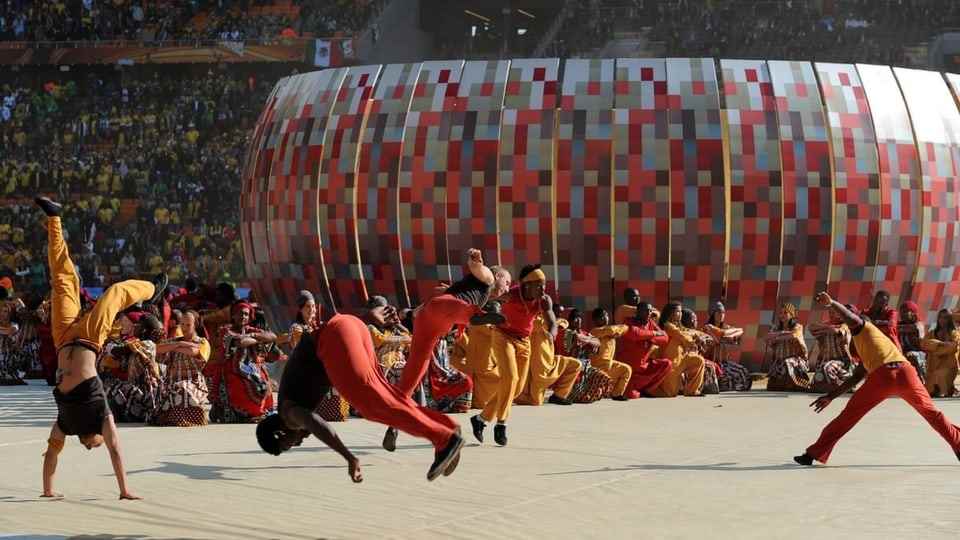
Legend:
Opening ceremony in Johannesburg: With few exceptions, the World Cup stadiums are currently underutilized and in deficit.
Keystone/GEORGI LICOVSKI
Construction workers built the stadiums for starvation wages and the slums were flattened. Accusation of Fifa: They would not have done anything against the human rights violations, although they were foreseeable and well documented.
Germany 2006: A dark shadow hangs over the awarding of the 2006 World Cup in Germany. A DFB investigation report confirmed the flow of “considerable funds” in 2021. The report says: “The findings so far show that FIFA executive members or their national associations have received considerable amounts of money and their voting behavior has been massively influenced.”
Argentina 1978: Argentina was a brutal military dictatorship in the late 1970s. People disappeared without a trace, members of the opposition were tortured and thrown into the sea from planes. To this day, it is not entirely clear how many people died at that time. According to human rights organizations, around 30,000 people fell victim to the dictatorship between 1976 and 1983. Explosive: Right next to the World Cup final stadium in Buenos Aires, where Argentina won the cup in front of the dictator Jorge Rafael Videla, around 5,000 people were tortured and murdered in a building during the dictatorship.
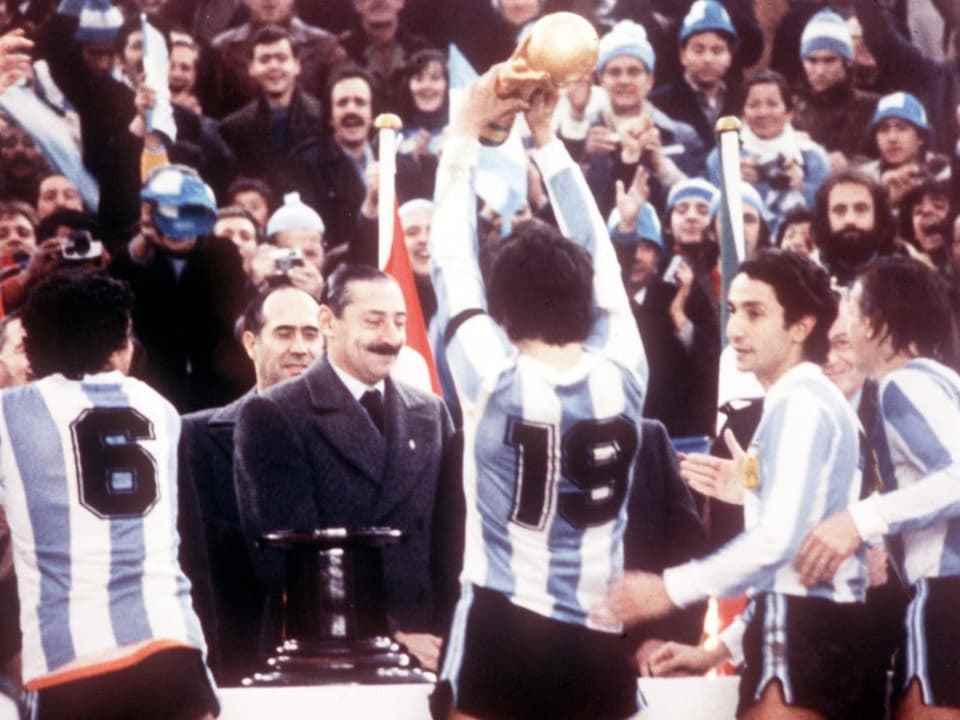
Legend:
Argentinian dictator Jorge Rafael Videla (middle) at the trophy presentation at the River Plate Stadium. (June 25, 1978)
Keystone/Heinz Duklau
Italy 1934: “Italy was by far the most blatant example,” sums up football expert Sykora. The World Cup there took place under the influence of the dictator Benito Mussolini. The strategic orientation was clear from the start: the fascist government wanted to use the power of sport to put themselves in a good light.
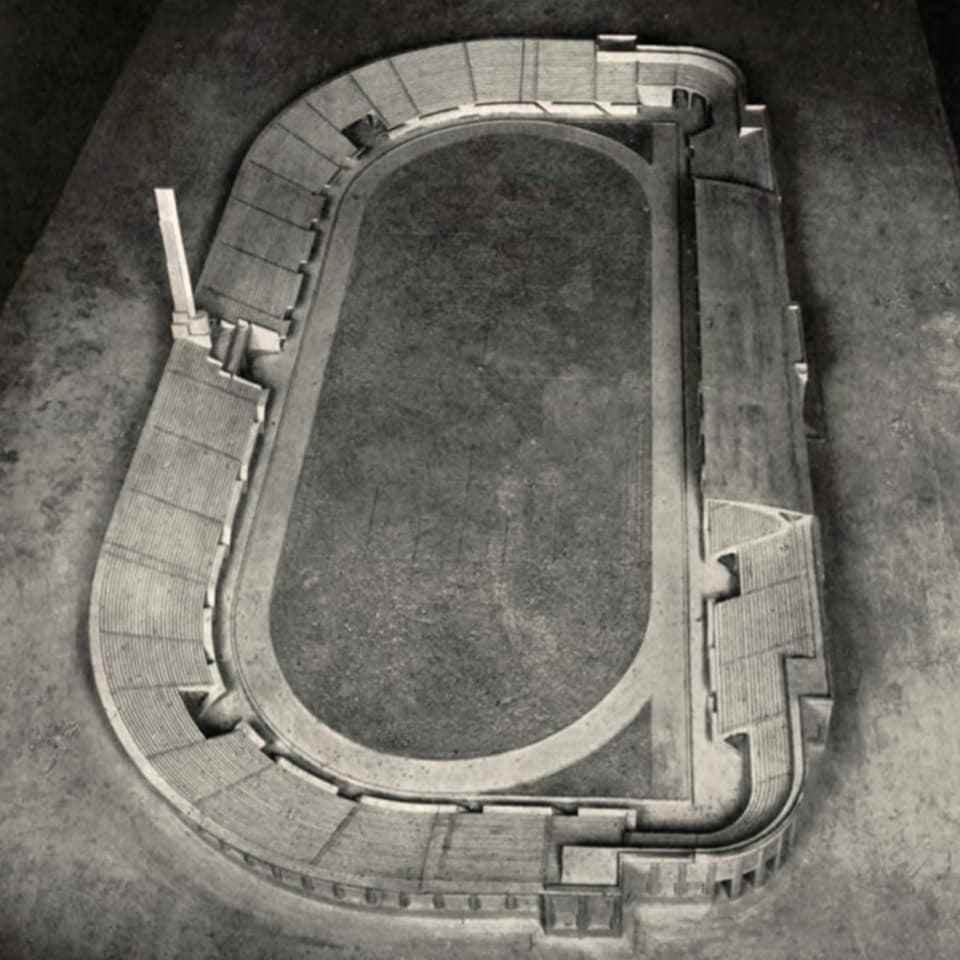
Legend:
The Arena in Florence is shaped like the letter “D” – D for Duce. AC Fiorentina still plays in it today.
Wikipedia/n/a
According to various football historians, it was no coincidence that Italy won the title. The Italian Football Association was solely responsible for allocating referees. Several glaring and inexplicable mistakes were made in the knockout stages, each in favor of the Azzurri.
Italy was clearly favored in the tournament. An example: In the semi-finals, the Swedish referee Eklind headed a cross himself from the Italian penalty area at a free-standing Austrian player. As a thank you, he was also allowed to lead the final.
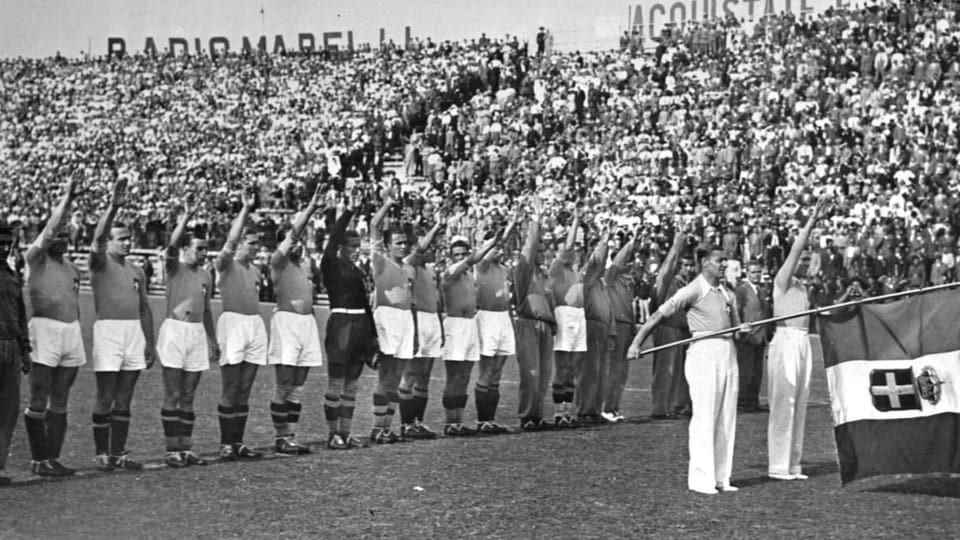
Legend:
The Italian national team shows the “Saluto romano” of the fascists.
Keystone/n/a
